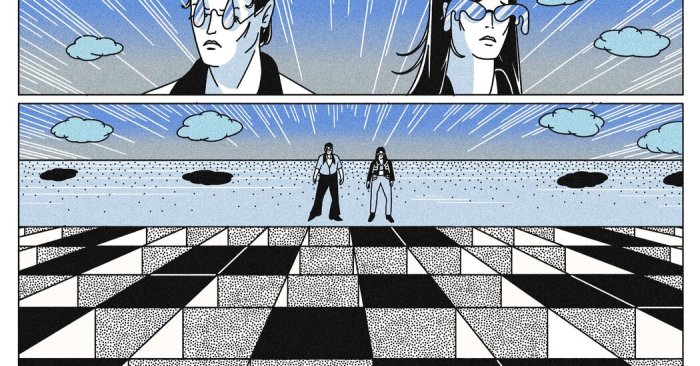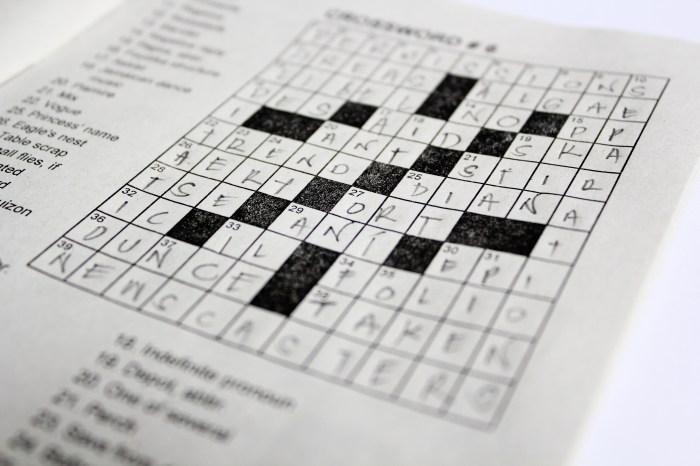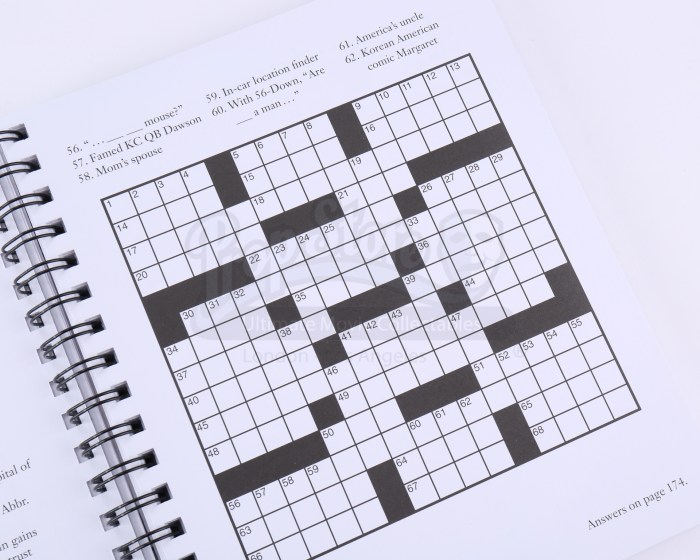What you used to be crossword – Embark on a captivating journey through the enigmatic world of “what you used to be” crossword clues. From their historical roots to their linguistic intricacies and cultural reflections, this exploration unravels the fascinating story behind these thought-provoking puzzles.
Throughout history, crossword enthusiasts have grappled with the challenge of deciphering these enigmatic clues, their minds traversing time and space to uncover hidden meanings and forgotten identities.
Historical Crossword Puzzle Analysis

Crossword puzzles, a beloved pastime that has captivated minds for over a century, have undergone a remarkable evolution since their inception. From their humble beginnings to their modern-day incarnations, crossword puzzles have consistently featured clever clues that challenge solvers’ intellect and vocabulary.
One such clue that has stood the test of time is “what you used to be.” This seemingly straightforward phrase has been employed in crossword puzzles throughout history, offering a wide range of interpretations that have both delighted and perplexed solvers.
Notable Crossword Puzzles Featuring “What You Used to Be”
Numerous notable crossword puzzles have featured the “what you used to be” clue, each offering a unique twist on this classic concept.
- 1924: Arthur Wynne’s First Crossword Puzzle: The very first crossword puzzle, created by Arthur Wynne, included the clue “What you used to be” with the answer “EX.” This simple yet effective clue set the stage for the countless variations that would follow.
- 1958: Margaret Farrar’s “Cryptic” Crossword: Farrar’s groundbreaking “Cryptic” crossword featured the clue “What you used to be, perhaps, is a matter of opinion” with the answer “AGE.” This cryptic clue challenged solvers to think beyond the literal meaning of the phrase.
- 1990: Will Shortz’s “New York Times” Crossword: Shortz’s acclaimed “New York Times” crossword featured the clue “What you used to be, but aren’t any longer” with the answer “EX-WIFE.” This clue played on the common usage of “what you used to be” to refer to a former spouse.
Linguistic Analysis of the Clue

The term “what you used to be” is a multifaceted expression that can refer to several interpretations. It can denote a person’s former occupation, role, or status. Alternatively, it can allude to a previous state of existence or a bygone era.
If you’re stuck on a “what you used to be” crossword clue, take a break and indulge in the tantalizing flavors of pf chang’s asian caesar salad . Its crispy wontons, tender chicken, and tangy dressing will transport you to a culinary paradise.
Once your taste buds are satisfied, return to the crossword puzzle with a refreshed mind and you might just find the answer you’re looking for.
Defining the Clue
In the context of crossword puzzles, this clue typically seeks a word or phrase that represents a person’s past identity or condition. For instance, the answer could be a former job title, a previous relationship status, or an outdated term for an object.
Variations and Difficulty
The difficulty of the clue can vary depending on the phrasing and the specific context of the puzzle. A straightforward clue like “What you used to be at work” may be relatively easy to solve, while a more ambiguous clue like “What you used to be called” could require more thought and research.
Examples
- Crossword puzzle: “What you used to be in the army” (Answer: “Private”)
- Crossword puzzle: “What you used to be before you were born” (Answer: “Embryo”)
- Crossword puzzle: “What you used to be when you were a child” (Answer: “Kid”)
Cultural Significance of the “What You Used to Be” Clue

The “what you used to be” clue in crossword puzzles holds cultural significance as it reflects the evolving values and perspectives of society over time. It serves as a linguistic mirror, capturing societal changes, cultural shifts, and historical transformations.
<>Clue Evolution as a Reflection of Societal Changes
In the past, this clue often pointed to traditional roles and occupations associated with specific genders, ethnicities, or social classes. However, as society progressed, so did the answers to this clue, reflecting a broader acceptance of diversity, inclusivity, and fluidity in identity.
<>Crossword Puzzles Exploring Social Issues and Cultural Trends
Crossword puzzles have leveraged the “what you used to be” clue to explore various social issues and cultural trends. For instance, some puzzles have used the clue to highlight the changing roles of women in society, the challenges faced by marginalized communities, and the evolution of technology and its impact on our lives.
Creative Applications of the Clue: What You Used To Be Crossword

The “what you used to be” clue offers a wealth of opportunities for innovative and challenging crossword puzzles. Its versatility allows constructors to create puzzles that are both educational and entertaining.
Unique and Unexpected Uses, What you used to be crossword
One way to use this clue creatively is to apply it to unexpected or unconventional answers. For instance, a clue like “What you used to be in a past life” could lead to answers such as “PHARAOH” or “SAMURAI.” Alternatively, the clue “What you used to be in a previous job” could lead to answers like “DOCTOR” or “ENGINEER.”
Educational Potential
The “what you used to be” clue can also be used to create puzzles that are both educational and entertaining. By incorporating historical or cultural references, constructors can introduce solvers to new concepts and knowledge. For example, a clue like “What you used to be in ancient Greece” could lead to the answer “CITIZEN OF ATHENS,” providing solvers with an insight into ancient Greek society.
FAQ Summary
What is the origin of the “what you used to be” crossword clue?
The origins of this clue can be traced back to the early days of crossword puzzles, when constructors sought to create challenging and thought-provoking puzzles.
How does the phrasing of the clue impact the difficulty of the puzzle?
The phrasing of the clue can significantly impact the difficulty of the puzzle. Clues that are more specific or provide more context tend to be easier to solve, while those that are more vague or open-ended can be more challenging.
Can you provide an example of a crossword puzzle that uses the “what you used to be” clue?
One example of a crossword puzzle that uses the “what you used to be” clue is the New York Times puzzle from March 23, 2023, where the clue “What you used to be, maybe” led to the answer “EX-SPOUSE”.